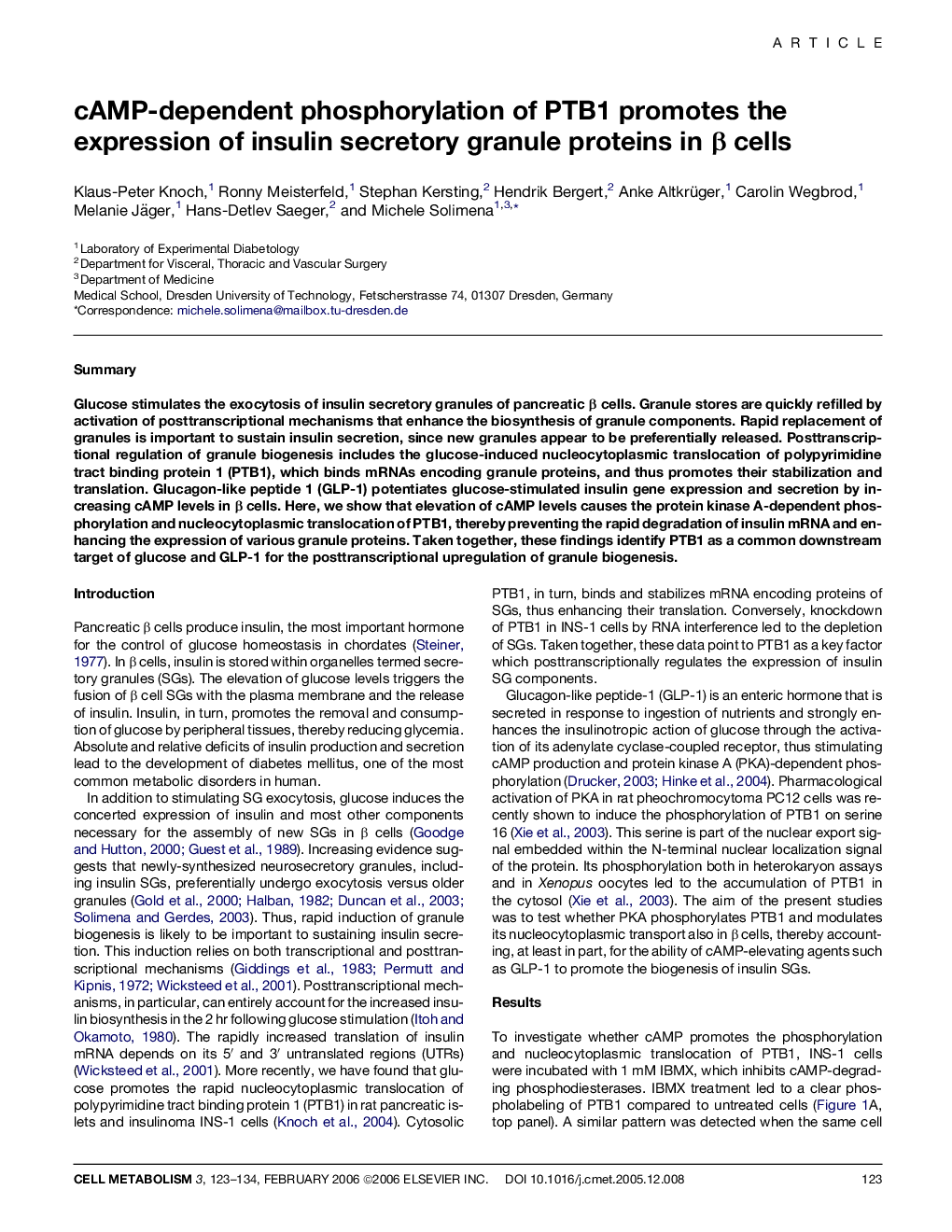| Article ID | Journal | Published Year | Pages | File Type |
|---|---|---|---|---|
| 2793566 | Cell Metabolism | 2006 | 12 Pages |
SummaryGlucose stimulates the exocytosis of insulin secretory granules of pancreatic β cells. Granule stores are quickly refilled by activation of posttranscriptional mechanisms that enhance the biosynthesis of granule components. Rapid replacement of granules is important to sustain insulin secretion, since new granules appear to be preferentially released. Posttranscriptional regulation of granule biogenesis includes the glucose-induced nucleocytoplasmic translocation of polypyrimidine tract binding protein 1 (PTB1), which binds mRNAs encoding granule proteins, and thus promotes their stabilization and translation. Glucagon-like peptide 1 (GLP-1) potentiates glucose-stimulated insulin gene expression and secretion by increasing cAMP levels in β cells. Here, we show that elevation of cAMP levels causes the protein kinase A-dependent phosphorylation and nucleocytoplasmic translocation of PTB1, thereby preventing the rapid degradation of insulin mRNA and enhancing the expression of various granule proteins. Taken together, these findings identify PTB1 as a common downstream target of glucose and GLP-1 for the posttranscriptional upregulation of granule biogenesis.
